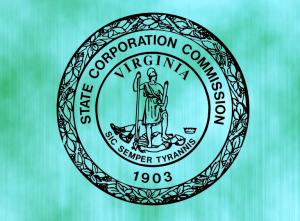Virginia OKs Repayment Plan Following Meter Reading Miscues

Responding to an electric utility's acknowledgement that demand charges assessed certain commercial customers may have been excessive over a past three-year period, the Virginia State Corporation Commission has approved a proposed rebilling program proffered by the utility, Virginia Electric & Power Company d/b/a Dominion Energy Virginia. The company told the commission that it had discovered in the summer of 2016 that some demand meters for general service customers may not have been reset to zero following a prior month's meter read. As a result, it said, an affected customer's demand may have been recorded the next month as higher than it actually was. Dominion Energy averred that while the problems had impacted thousands of customers, the effects were mostly limited to those categorized as small or mid-sized commercial customers.
The utility said that, in collaboration with a third-party consultant, it had been able to identify as many as 24,000 customers whose demand may have registered as greater than it actually was during billing cycles stretching from July 2013 to June 2016. The company admitted that it was possible that erroneous demand meter readings had occurred even prior to 2013. However, it stated, it simply did not have sufficient records through which to verify that possibility. At the same time, though, Dominion Energy asserted that if a customer has its own billing documents proving that it was overbilled prior to 2013, that customer obviously would be entitled to a refund.
Dominion Energy explained that some meter readers apparently had failed to return certain meters to the zero demand mark after taking a reading. Thus, it informed the commission, if a customer's subsequent monthly peak demand was less than that of the previous month, the customer would have been overbilled when the next meter reading was conducted. Conversely, however, if a customer's peak demand in the following month was actually higher than it was in the previous month, the failure to reset the demand meter to zero would be of no consequence.
The utility conceded that it was virtually impossible to ascertain with any precision exactly how much or how often the affected customers had been overcharged. The company therefore opted to rely on estimates of demand, in conformance with tariff terms for such.
According to the utility, that involves recognition of a customerspecific average load factor in conjunction with a class-based "stratified" methodology. If the ensuing calculation indicates that a customer's demand for a month likely would have been lower than what was recorded, a refund will be issued, with that refund reflecting the rate schedules applicable during the period in question. The company predicted that it ultimately will provide between $11 million and $12 million in reparations.
Stating that it was aware that customers had endured a definitive "inconvenience" because of the billing errors, Dominion Energy voluntarily committed to offering its customers, as a goodwill gesture, an additional 5% credit along with the refunds. It also pledged to attach appropriate interest to the reparations, exclusive of the credit.
In considering the utility's repayment proposal, the commission deemed it to be both reasonable and consistent with the company's tariffed terms and conditions of service. Nevertheless, while pleased with Dominion Energy's proactive response to the meter misreads, the commission found it necessary to require the utility to submit status reports on its refund efforts at least every 90 days. Such reports are to include data on the total number of customers overbilled, the total amount returned to those customers, the portion of the refunds attributable to interest, and the portion attributable to the goodwill credit.
The commission emphasized that the repayment requirement was applicable only to demand charges and did not extend to energy charges, as those meters did not require monthly resetting. Re Virginia Electric & Power Co., Case No. PUR-2017- 00046, July 28, 2017 (Va.S.C.C.).



